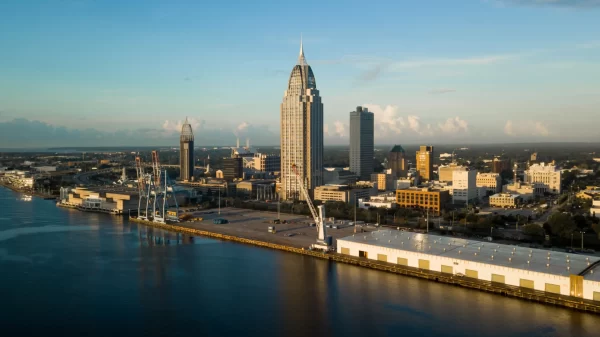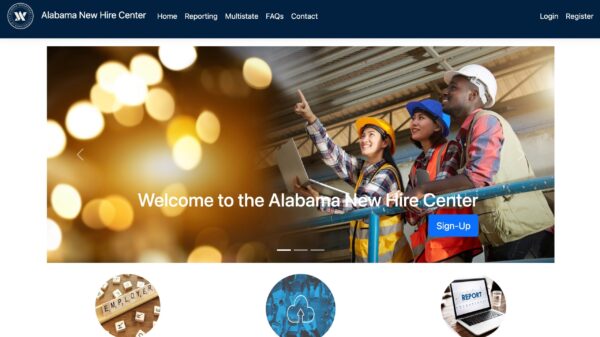You know there’s more of us, right?
Over the years, as discussions of Alabama’s unequal funding structures of government and schools have popped up, and as I’ve watched the sure-as-the-setting-sun outcome of working class people footing the bills, that one thought has always dogged me.
Why do we keep letting them get away with this? There’s a bunch more of us.
But to be fair to us, I guess, the issue has rarely been so cut and dried, so easy to discern the players on each side. However, when it comes to the current plight of Alabama’s education trust fund and the shortfalls that are certain to come, the proposed solutions are as black and white as they come.
We know the players in this game. Because the lawmakers in our legislature have done us the favor of laying bare the players on each side by threatening to end a tax break for working folks while simultaneously moving forward with implementing an even bigger tax break for rich people.
The sides couldn’t be more obvious.
On one side are the hourly workers of this state, who keep funding everything at a much higher rate than the rich dudes who make the rules. They’re the factory workers and construction workers and clock-punchers from Mobile to Mentone.
They’re the folks who are benefitting currently from a tax break on overtime pay. That break was the brainchild of Rep. Anthony Daniels, a Democrat, who somehow managed – in Alabama’s Republican-dominated legislature – to get every single lawmaker to vote for it. Because it’s an undeniably good initiative that rewards hard work and gives a break to the very people who need it the most.
But now, with the education trust fund – where those overtime taxes would have gone – facing potential shortfalls, some lawmakers in this state are looking to kill off that tax break. Because we can’t afford it.
And the reason we can’t afford it is because those same lawmakers want to give a tax break to the folks on the other side of this debate – the rich folks.
Now, they’re not bad people, mostly. But they sure as hell don’t need another break, and certainly not the one we’re about to give them – a massive school voucher that will funnel public tax dollars from public schools (where they belong) to private schools.
That spectacle – tax dollars going to a private business – is bad enough. But who it’s going to help is even worse.
Because our legislature put no cap on the CHOOSE Act, when it is fully implemented in a few years, the majority of what is projected to be a half-billion-dollar hit (at a minimum) to the education trust fund will go to rich people who are already sending their kids to private schools.
Doubt this? Well, I’ve got stats for you.
In Florida in 2023, 69 percent of the recipients of that state’s new voucher program were already enrolled in private schools.
In Arizona, more than 75 percent of the vouchers went to students that had never spent a day in a public school. (Read that again.)
In Iowa, more than two-thirds of voucher recipients were already enrolled in private schools.
Still need more information? OK, fine.
In Arizona, families with incomes that ranked in the top 10 percent of the state participated in the voucher program at five times the rate of the other 90 percent.
In Florida in 2024, 44 percent of the vouchers went to families that made at least $120,000 per year.
So, we’re going to fork over a half-billion or so to people who don’t need it. And we’re going to do it for a program that we know not only doesn’t work, it’s an absolute train wreck of academic failure, fraud and embezzlement.
According to four separate studies of voucher programs implemented in Washington D.C., Louisiana, Ohio and Indiana, and reported by Time, documented learning loss recorded in the post-voucher districts was between -0.15 and -0.5. To put that in context: it’s worse than pandemic loss and on par with what New Orleans experienced post Hurricane Katrina.
And that’s before we start discussing the mountain of fraud and embezzlement cases associated with handing over public tax dollars to private businesses that mostly avoid the same level of financial scrutiny we demand of our public institutions. If you doubt the seriousness of the problem, do me a favor and just Google up “school vouchers fraud and embezzlement.” There’s one website that has documented thousands of cases.
This is the sort of mess you get into when you shirk your responsibilities to govern for the betterment of all in the interest of catering to the whims of a few powerful people. Your decisions don’t pass the common sense tests.
It’s time for a lot of working people to take a stand. Because we know this is BS. We know our public schools and our public school teachers are underfunded and cash strapped as it is. We know that giving working people a lousy five percent break on overtime pay can’t be that big of a burden. We know that this is nothing more than a ruse – one more scheme to get working people to pay for the better lives of rich people.
Just like with the gas tax. Just like when we couldn’t possibly eliminate all of the grocery tax. Just like when we couldn’t raise taxes on timber lands to lower income tax rates. Just like all the times working people ended up on the short end, watching folks who need a break the absolute least getting every single one of them.
At some point, maybe we’ll remember a simple truth: There’s way more of us.




















































